Rasmī or aslī?: Arabic’s impact on Israeli Hebrew
Overview
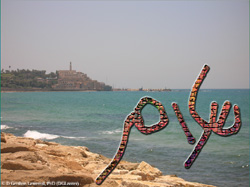
This is a work in progress. Any suggestions, corrections, and criticisms are most appreciated. Do you have contributions to the appendix of Arabic slang in Hebrew? Click here.
Table of contents
5. Appendix: List of Arabic-origin slang in Hebrew
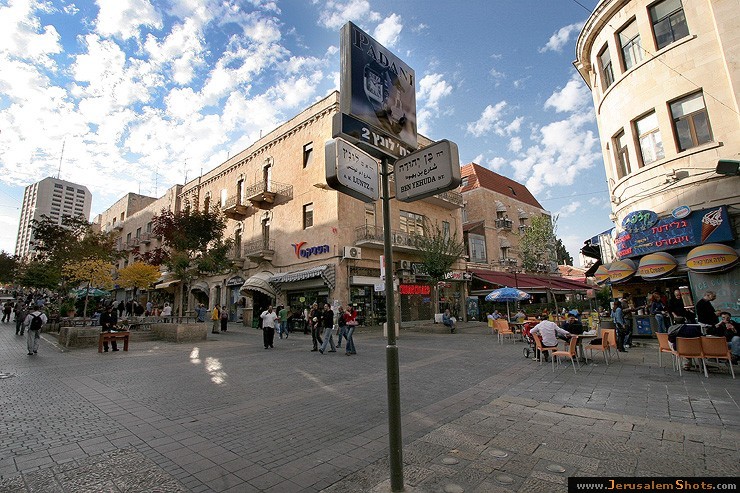
Note: Since this is an on-going compilation, additions and suggestions are welcome.
5.1 Positive terms

- abādāy [قبضاي < אבדאי/עבדאי]: muscular and well-built person, tough guy
- abūyāh [ابوية < אביד]: term of affection
- abyad [ابيض < אביד]: ‘clean’, ‘innocent’
- aḥlāh [أحلى < אחלה]: ‘excellent, awesome’
- aḥsan [احسن < אחסן]: ‘excellent’
- akbar [أكبر < אכבר]: ‘huge’
- ʿālāʾ kéyfaq/ʿālāʾ kéyf kéyfaq [على كيفك < עלא כיפק/עלא כיף כיפק]: ‘terrific’, ‘sure!’
- aslī [اصلي < אסלי]: ‘genuine, authentic’
- ʿayyūnī [عيوني < עיוני]: ‘darling’
- baladī [بلدي < בלדי]: ‘choice, select’, with food; ‘local, native’
- daḥqāh [ضحكة < דחקה]: something funny, a prank
- dāḥqōt [ضحكة < דאחקות]: ‘joking-around’
- dūgrī [دغري < דוגרי]: ‘straight-forward speech’
- ghazālāh/razālāh [غزالة < ע'זאלה/רזאלה]: charming young woman
- ḥabībī [حبيبي < חביבי]: ‘my friend, dude’
- ḥabūb [حبوب < חבוב]: ‘buddy’
- ḥamsāh [خمسة < חמסה]: ‘knock-on-wood’
- jamāʿāh [جماعة الخير < ג'מאעת/ג'מעת אל-חיר]: ‘the good guys’
- jamāʿāt al-khéyr [جماعة < ג'מאעה/ג'מעה]: ‘the gang, the crew’
- jedaʿ [ג'דע]: ‘tough guy/girl, hero, Amazon’
- kéyf [كيف < כיף]: ‘fun’
- kīf/chīf [كف < כיף/צ'יף]: ‘hand slap, low-five’
- mabsūṭ [مبسوط < מבסוט]: ‘happy’
- maʿrūf [معروف < מערוף]: ‘favour, famous person’
- mūsh-baṭal [مش بطال < מוש-בטל]: ‘impressive’
- sabābāh [صبابة < סבאבה/סבבה]: ‘terrific, awesome’
- ṣabbār [صبار < צבר]: ‘native-born Israeli’
- saḥbāq [صاحبك < סחבאק/סחבק]: ‘chum’
- salāmtō/salāmtak [سلامتك < סלאמתו/סלאמתק]: ‘good guy’
- saṭlāh [سطل < סטלה]: ‘chilling, being high’
- shaʾfāh/shaqfāh [شقفة < שאפה/שקפה]: attractive young woman, ‘hottie’
- shāṭer [شاطر < שאטר/שטר]: person of principles, hardworking, ‘hero’
- shṭārā [شطارة < שטארה/שטרה]: ‘act of bravery’
- wāḥad [واحد < וואחד]: ‘singular’
- ūsūl [اصول < אוסול]: ‘original’
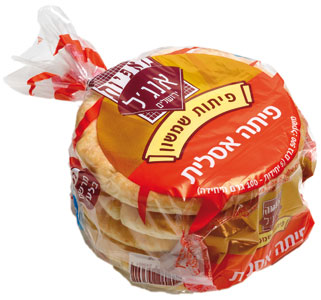
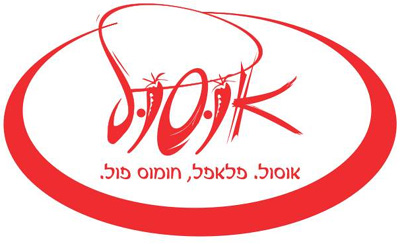
5.2 Negative terms
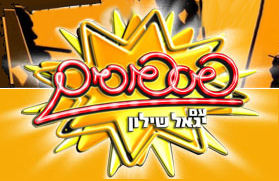
- ahblāh [هبلة < אבלה]: ‘stupid’ (for a female)
- abū ʿajéylāh [ابو عجيلة/عقال < אבו עג'ילה]: someone with a slicked, braided, and rounded hairstyle (archaic)
- abū ʿalī [ابو علي < אבו עלי]: ‘show-off’, someone with a threatening behaviour
- abū antār [ابو عنتر < אבו ענתר]: ‘haughty’ (derives from the name of an Arab fighter)
- abū arbaʿ [ابو اربع < אבו ארבע]: ‘four-eyes’
- abū el-bānāʾt [ابو البنات < אבו אל-בנאת]: ‘father of daughters’
- abū jīldāh [ابو جلدة < אבו ג'ילדה]: ‘Jesse James’ (name of an Arab bandit in the 1940s)
- abū zākān [ابو ذكن < אבו זקן]: someone with a beard
- ahbal [أهبل < אהבל]: ‘idiot’
- āḥūl-manyūq [אחול-מניוק]: ‘bastard, rascal, trickster’
- ʿāléhūm [عليهم < עליהום]: ‘barrage of attacks’
- ʿaqrūt [عكروت < עקרוט]: ‘rascal, bastard’
- ʿars [عرس < ערס]: ‘pimp, conniving macho’
- ʿawanṭāh/ʿawanṭāh [עוונטה/אוונטה]: ‘mess-up’, ‘showing off’, ‘fake behaviour’, ‘cheating’
- baʿsāh or baʾsāh [بعصة < בעסה/באסה]: ‘bummer’
- chīlbāh [كلبة < צ'ילבה]: rival or someone with whom one is angry, often for girls
- daʾawīn [داوين < דאוין]: ‘showing off’
- debaʿ [ضبع < דבע]: ‘jackal’, ‘stupid’
- fādīḥāh [فضِيحة < פדיחה]: ‘faux pas’, ‘mess-up’
- fashlāh [فشلة < פשלה]: ‘screw-up’
- fisfūs [فسة فسة < פיספוס]: ‘loss’
- fréḥāh [فرخة < פרחה]: ‘bimbo’
- ghasbin ʿanak/rasbin ʿanaq [غصبن عنك < ע'סבן ענכ/רסבן ענק]: ‘forcibly, against your will’
- ḥafīf [خفِيف < חפיף]: ‘carelessly’
- ḥanṭārīsh [חנטריש]: ‘much ado about nothing’, ‘crap, worthless’
- ḥārā/ḥārāh [خرا < חרא]: ‘shit, crap’
- ḥārt el-ṭanaq [חארת אל-טנק]: ‘the boondocks, the middle of nowhere’
- ḥashab/roʾsh-ḥashab [חשב/ראש-חשב]: ‘dummy, blockhead’
- ḥīrbeh/khirbeh [خربة < חירבה/ח'רבה]: ‘ruin, old building’, archæological site
- hitḥarfen [خرفان < התחרפן]: ‘go nuts’
- jāḥsh [جحش < ג'חש]: ‘beheaded chicken’, for youths
- jānānāh [مجنون < ג'נאנה]: ‘craziness’
- jōrāh [جورة < ג'ורה]: ‘sewage, dirty mouth’
- kalām fādī [كلام فاضي < כלאם פאדי]: ‘idle chatter’
- maʿafan [معفن < מעפן]: ‘lame’
- māfīsh [ما فيش < מפיש]: ‘empty, lacking’
- māfīsh māsārī [ما فيش مصاري < מפיש מסרי]: ‘broke’
- majnūn [مجنون < מג'נון]: ‘crazy, nuts’
- malʿūn [ملعون < מלעון]: ‘cursed’
- maʿrūf [معروف < מערוף]: ‘a favour’
- masḥārāh [מסחרה]: ‘a lot of talk, nonsense’, ‘shady dealings’
- masṭūl [سطل < מסטול]: ‘wasted, high’
- mitqaʿwed [מתקעווד]: ‘gigolo’, ‘male prostitute’, ‘submissive party in sexual relations’
- mūʿālem [معلم < מועלם]: ‘big boss’, ‘teacher’, with sarcasm
- mūḥaṭāh [مخاطة/مخاط < מוחטה]: ‘snot’
- nāḥs [نحس < נאחס]: ‘lousy’
- qaḥbāh [قحبة < קחבה]: ‘slut’
- sāḥī [صحي < סחי]: ‘a square’, a sober person, someone who does not use drugs
- shabāb [شباب < שבאב]: ‘rowdy youths, whippersnappers’
- shūfūnī [شوفوني < שופוני]: ‘showing-off’ or ‘show-off’
- tafrān [طفران < תפראן]: ‘pauper’
- tāmōy/tāmūy [תמוי]: ‘simpleton’
- ṭawīl wa-habīl [טוויל והביל]: ‘big dummy’, for someone tall
- ṭembel [تنبل < טמבל]: ‘fool’
- wājerās/būjerās [وجع رأس < ווג'ראס/בוג'ראס]: ‘headache, nuisance’
- wāsaḥ [وسخ < וואסח']: someone haughty
- zaṭrūḥāh [זטרוחה]: ‘ugly girl’
- zbūn/zbūnīt [زبون < זבון/זבונית]: ‘some guy/chick, random loser’ (sometimes with sexual connotation)
- zebāleh [זבלה]: ‘trash’
- zīft [زيفت < זיפת]: ‘crap’
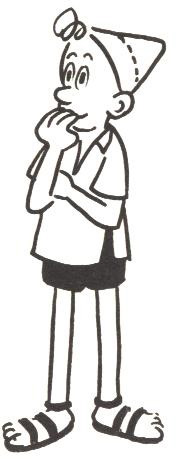
5.3 Activities, locations, items, and neutral terms

- ʿājūʾīm [عجمة/عجوة < עג'ואים]: apricot seeds used like marbles
- basṭāh [بسطة < בסטה]: market stall
- bandūrāh [בנדורה]: a marble game
- blōrōt [בלורות]: marbles
- chīzbāṭ [צ'יזבאט/צ'יזבט]: ‘tall tale’
- grūsh [גרוש]: ‘a penny’
- ḥaflāh/ḥafleh [حفلة < חפלה]: ‘party’
- ḥamsāh/ḥamseh [خمسة < חמסה]: palm-shaped amulet
- ḥamsīn [خمسين < חמסין]: hot, south-western wind, ‘heat-wave’
- ḥamūlāh [حمولة < חמולה]: ‘clan or extended family’
- ḥmāl [חמאל/חמל]: ‘a bunch’
- ḥan/ḥān [خان < חן/ח'אן]: caravanserai, inn
- ḥāsāqeh [חסקה]: surfboard
- ḥāshīsh/ḥishshésh [حشيش < חשיש/חישש]: ‘marijiuana (Ar. ḥashīsh)’, ‘to smoke marijiuana’
- hitlazzém [لازم < התלזם]: ‘to be turned on’
- finjān [فنجان < פינג'אן/פינג'ן]: coffee pot
- jabel [جبل < ג'בל]: mountain, hill
- jablāʾōt [جبل < ג'בלאות]: ‘rough terrain’
- jārāh [جرة < ג'ארה/ג'רה]: urn, large jar
- jūlōt/jūlīm [ג'ולות/ג'ולים]: marbles
- kāfiyyāh [كوفية < כפייה]: kaffiyah, Arab headdress
- kalamāt/qalamāt [كلمات < כלמאת/קלמת]: words
- madafeh [מדפה]: salon, lounge room
- mangāl [منقل < מנגל]: barbeque
- mlān [מלאן/מלן]: ‘a ton’
- mūḥārem [محرم < מוחרם]: in the midst of moving apartments
- mukhtār [مختار < מוכתאר]: village chieftain
- nabūṭ [نبوت < נבוט]: wooden club, cudgel
- naglāh [نقلة < נגלה]: trip, round
- rasmī [رسمي < רסמי]: ‘official’
- sharqiyyāh [شرقية < שרקייה]: hot, eastern wind
- shwāreb/abū shwāreb [شارب < שווארב/אבו שווארב]: mustache, ‘man with a ’stache, mustachioed man’
- stalbeṭ [סתלבט/סטלבט]: ‘having a good time’, ‘lazy relaxation’
- sulḥāh [صلحة < סולחה]: ‘rapprochement, making peace’
- ṭābūn [طابون < טאבון/טבון]: stone oven; outdoor bread oven
- ṭayyārāh [طياره < טיירה]: kite or small plane, for children
- wādī [وادي < וואדי]: wādī, winter stream valley
- zambūrāh [זמבורה]: car horn
- zelemeh [زلمي < זלמה]: ‘man, guy’
- zimbūr/zambūr [זמבור]: ‘screwing’ (sexual intercourse)
- zimzūm [זמזום]: ‘hum, buzz’
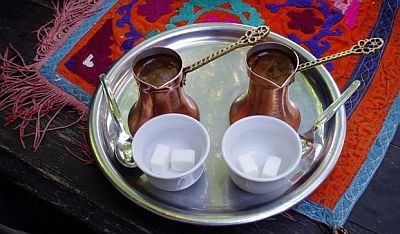
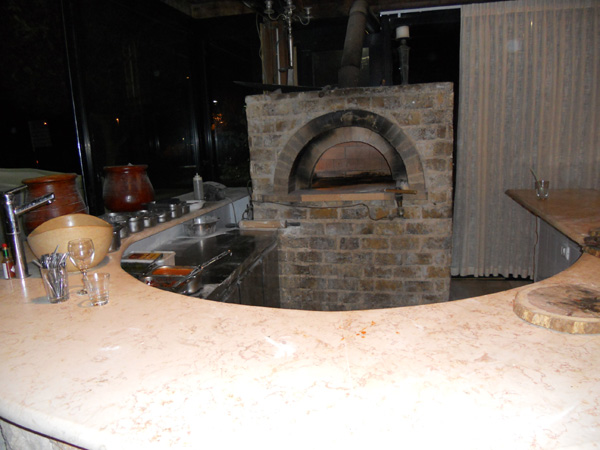
5.4 Interjections and curses
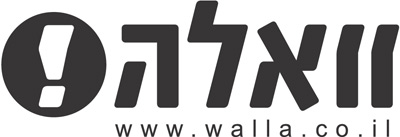
- ahlān/ahlān wa-sahlān [أهلاً و سهلاً< אהלן/אהלן וסהלן]: ‘hi’, ‘welcome, be my guest!’
- aḥūsharmūṭāh/ḥūsharmūṭāh [أخو الشرموطة < אחושרמוטה/חושרמוטה]: ‘unbelievable’
- ʿālāʾ fādī [עלא פאדי/פדי]: ‘for nothing, for no reason’
- ʿālāʾ ṭūl [على طول < עלא טול]: ‘on the nose, exactly’, ‘immediately, right away’
- ʿālek/kāleq/qaṭleq [قال لك < עאלכ/עלכ/עאלק/כאלק/קטלק]: ‘yeah, right!, as if!’, with sarcasm
- ʿāléhūm [عليهم < עליהום]: ‘attack!’
- ʿāléynā [علينا < עלינא]: ‘no way!, wrong!’
- allāh yeraḥmū [الله يرحمه < אללה ירחמו]: ‘God have mercy, pity him/them’
- allāh yūstōr [الله يستر < אללה יוסתור]: ‘God forbid!’, ‘God protect (us)’
- allāhu akbar [الله اكبر < אללה אכבר]: ‘God is great!’
- anā ʿāref [انا عارف < אנא ערף]: ‘I should know?!’
- ashkārāh [אשכרה]: ‘for real, truly’
- bās [بس < באס]: ‘enough!’
- barūd [برود < ברוד]: ‘heads up!’, when using explosives
- be-ḥayyāt [بحيات < בחייאת]: ‘for heavens sake’
- daḥīlaq [دحيلك < דחילק]: ‘please, for goodness sake’
- dīr bālaq [دير بالك < דיר באלק]: ‘be careful!, watch out!’
- ḥālās/ḥālāsnā [خلص < חלס/חאלס/חלסנא]: ‘stop! enough!’
- ḥamdūllāh [الحمد الله < חמדוללה]: ‘thank God!’
- ḥārā/ḥārāh [خرا < חרא]: ‘shit!, crap!’
- ḥaslō/ḥaslū [חסלו]: ‘in short’
- īnʿal/yinʿal/īlʿan rabbāk/dīnāk/abbūk [انعل ربك/دينك/أبوك < אינעל/ינעל/אילען רבאכ/דינאכ/אבוכ]: ‘curse your Lord/religion/father’
- īnshaʾllāh [ان شاء الله < אינשאללה]: ‘God-willing’
- kīf/kīf ḥālek [كيف حالك < כיף/כיף חאלכ]: ‘what’s up?’
- kūsʾemak/kūsʾemet [كسامك < כוסאמכ/כוסאמת]: a reference to the recipient’s mother
- maʿaléysh/maʿléysh [معليش < מעליש]: ‘no matter’
- mabrūk [مبروك < מברוכ]: ‘congratulations!’
- min allāh [من الله < מן אללה]: ‘it’s the will of God, nothing can be done’
- mūsh-ʿaref [مش عارف < מוש-ערף]: ‘(I have) no clue!’
- mūsh-lāzem [مش لازم < מוש-לזם]: ‘no need!’
- qishṭāh [كيس < קישטה]: ‘scat!’
- saḥtéyn [صحتين < סחתין]: ‘well done!’
- sharmūṭāh [شرموطة < שרמוטה]: ‘slut, whore’
- tfaddal/tfaddalū [تفضل < תפדל/תפדלו]: ‘be my guest!, welcome!, come on in, go ahead’
- tislām [תסלם]: ‘well done!, good going!’
- ūdrūb [אודרוב]: ‘come on!, onwards!’
- waʾllāh [والله < ואללה]: ‘really?’
- waʾllāhī [والله < ואללהי]: ‘verily!’, ‘I swear!’
- walak/walek [ولك < וולכ/וואלך]: term of emphasis
- wardāh [وردا < ורדה]: ‘ahoy!’
- yā/yāh [يا < יא/יה]: ‘O!, hey!’, ‘Oy!’
- yā-allāh [يا الله < יא-אללה]: ‘Oh God!, God!, Good Heavens!, Wow!’
- yā-bā-yeh [יא-בא-יה]: ‘Oh God!, God!, Good Heavens!, Wow!’, with wonder
- yā-shéykh [يا شيخ < יה-שייח']: ‘your honour’, with and without sarcasm
- yā-wardī/yā-waradī [يا ويلي < יה-וורדי]: ‘Oh God!, God!, Good Heavens!, Wow!’, with astonishment
- yā-wélī/yā-walī [يا ويلي < יה-וולי]: ‘Oh God!, God!, Good Heavens!, Wow!’, with sorrow or wonder
- yaʾllāh [يالله < יאללה]: ‘come on!’
- yaʿnī/yaʿanī [يعني < יעני]: ‘that is’
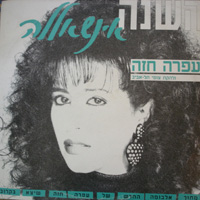
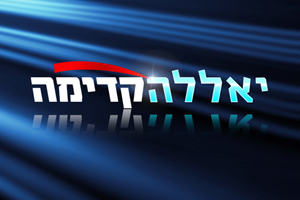
5.5 Expressions and idioms
- aḥsan min bālāsh [احسن من بلش < אחסן מן בלש]: ‘better than nothing’
- ʿālāʾ bāb-allāh [على باب الله < עלא באב-אללה]: ‘to the gate of God’ (i.e., ‘que sera sera, what will be, shall be’)
- ʿālāʾ rāsī [على رأسي < עלא ראסי]: ‘on my head’ (i.e., ‘on me, on my authority’)
- ʿālāʾ sūbéḥ [على صبح < עלא סובח]: ‘in the morning’ (i.e., ‘first thing in the morning’)
- baynī wa-baynaq [بيني وبينك < ביני לבינק]: ‘between me and between you’ (i.e., ‘entre nous’, ‘just between us’)
- buqrāh fī-l mīshmīsh [بكرا في المشمش < בוקרה פיל מישמיש]: ‘tomorrow in the (season of the) apricot’ (i.e., ‘when hell freezes over, obviously not, forget it, there’s no chance’)
- īlī fāt—māt [اللي فات مات < אילי פאת—מאת]: ‘whatever passed is dead’ (i.e., ‘let bygones be bygones’)
- kalb ash-shéykh shéykh [كلب الشيخ شيخ < כלב א-שייח' שייח']: ‘a shaykh’s dog is a shaykh’ (i.e., a leader’s authority extends to his lowest subjects)
- kul kalb bījī yōmō [كل كلب بِيجِي يومه < כל כלב ביג'י יומו]: ‘every dog shall have his day’ (i.e., ‘everyone gets what’s coming to them’)
- ... lā baṭīḥ [... لا بطيخ < ... לא בטיח]: ‘... no watermelon’ (i.e., ‘sweet Fanny Adams, ... nothing at all!’)
- min hūn le-hūn [من هن لهن < מן הון להון]: ‘from here to here’ (i.e., ‘from here to there’)
- shwayeh shwayeh [شوية شوية < שוויה שוויה]: ‘little, little’ (i.e., ‘little by little, slowly, piece by piece, one at a time’)
- yāḥreb-bétāk [יחרב-ביתכ]: ‘may your house be detroyed!’ (i.e., ‘bless you!’, with admiration)
- yōm ʿasal, yōm basal [يوم عصل, يوم بصل < יום עסל, יום בסל]: ‘a honey day, an onion day’ (i.e., ‘some days are good, others bad; c’est la vie!’)
Do you know of other examples of Arabic-origin slang in Hebrew? If you have any terms to contribute to the lists above, any corrections to point out, or any comments about this appendix, please use this form to suggest submissions.
Bibliography and further reading
Note: A large amount of literature exists on the subject of the Hebrew language, modern Israeli slang, and the interaction of Hebrew and Arabic. The bibliography below contains not only a list of works consulted in the preparation of this article, but also sources for further research on the topic.
Works consulted
Aḥīʾasaf, ʿŌdéd, et al. Leqsīqōn ha-sleng ha-ʿIvrī we-ha-ṣevāʾī [Lexicon of Hebrew and military slang]. Ramat-Gan: Prōlōg, 1993.
Almog, Oz. The Sabra: The Creation of the new Jew. S Mark Taper Foundation imprint in Jewish studies. Translated from Hebrew by Haim Watzman. Berkeley/Los Angeles/London: University of California Press, 2000.
Bar-Adon, Aaron. ‘Language planning and processes of nativization in the newly revived Hebrew’. In ha-ʿIvrīt bat-zmannénū: Meḥqārīm we-ʿiyyūnīm [Studies on contemporary Hebrew], ed. Shelomo Morag, 198–213. Vol. 1. Jerusalem: Academōn Press, 1987.
Ben-Amotz, Dahn and Netiva Ben-Yehuda. Millōn ʿolāmī le-ʿIvrīt medubberet [World dictionary of Hebrew slang]. Tel-Aviv: A Lewīn-Epshṭayn, 1972–1982.
Ben-Yehūdāh, Elīʿezer. ‘Meqōrōt: Le-malléʾ he-ḥāsér bi-leshōnénū [Sources to fill the lacunæ in our language]’. Zikhrōnōt Waʿad ha-Lāshōn 4 (1914/5674): 3–14. [online] [online (text)]
Blanc, Haim. ‘Hebrew in Israel: Trends and problems’. In ha-ʿIvrīt bat-zmannénū: Meḥqārīm we-ʿiyyūnīm [Studies on contemporary Hebrew], ed. Shelomo Morag, 155–167. Vol. 1. Jerusalem: Academōn Press, 1987.
Blanc, Haim. Lāshōn bnéy-ādām [Human language]. Jerusalem: Bialik Institute, 1989.
Blau, Joshua. The Renaissance of Modern Hebrew and Modern Standard Arabic: Parallels and differences in the revival of two Semitic languages. Near Eastern Studies, 18. Berkeley: University of California Press, 1981. [online]
Chomsky, William Zev. Ha-Lāshōn ha-ʿIvrīt be-darkhéy hitpatḥūtāh [Hebrew, the eternal language]. Sifriyyat Dānī le-maddāʿ we-haśkél, 76. Jerusalem: Rubin-Mass, 1967.
Chomsky, William Zev. Hebrew: The Eternal language. Philadelphia: Jewish Publication Society of America, 1969.
Kornblueth, Ilana and Sarah Aynor. ‘A Study of the longevity of Hebrew slang’. International Journal of the Sociology of Language 1 (1974): 15–38 (DOI 10.1515/ijsl.1974.1.15).
Kutscher, Eduard Yechezkel. A History of the Hebrew language, ed. Raphael Kutscher. Jerusalem: Magnes Press of the Hebrew University, 1982.
Morag, Shelomo, ed. Ha-ʿIvrīt bat-zmannénū: Meḥqārīm we-ʿiyyūnīm [Studies on contemporary Hebrew]. 2 vols. Jerusalem: Academōn Press, 1987.
Piamenta, Moshe. ‘Hashpāʿat ha-ʿArāvit ʿal ḥīddūshéy Ben-Yehūdāh [The Influence of Arabic on the innovations of Ben-Yehūdāh]’. Leshōnénū lā-ʿām 12.6 (118) (Nīsān–Īyyār 1961/5721): 150–158.
Rozental, Rubik. Millōn ha-sleng ha-meqīf [Dictionary of Israeli slang]. Jerusalem: Keter, 2005.
Sáenz-Badillos, Angel. A History of the Hebrew language. Translated from Spanish by John Elwolde. 1st paperback ed. New York City: Cambridge University Press, 1996.
Sappan, Raphael. ‘Hebrew slang and foreign loan words’. Ariel 25 (Winter 1969): 75–80. [online (text)]
Sappan, Raphael. Mīllōn ha-sleng ha-Yiśreʾélī [The Dictionary of Israeli slang]. Jerusalem: Qiryat-Sefer, 1965.
Shehadeh, Haseeb. ‘The Influence of Arabic on Modern Hebrew’. In Études sémitiques et samaritaines offertes à Jean Margain, ed. Christian-Bernard Amphoux, Albert Frey, and Ursula Schattner-Rieser, 149–161. Lausanne: Éditions du Zèbre, 1998.
Shehadeh, Haseeb. ‘The Influence of Arabic on Modern Hebrew’. Langues et linguistique 5 (2000): 55–66.
Wexler, Paul. The Schizoid nature of Modern Hebrew: A Slavic language search of a Semitic past. Wiesbaden: Otto Harrassowitz, 1990.
Further reading
Amara, Muhammad Hasan and Bernard Spolsky. ‘The Diffusion and integration of Hebrew and English lexical items in the spoken Arabic of an Israeli village’. Anthropological Linguistics 28.1 (Spring 1986): 43–54.
Avinery, Isaac. Kibbūshéy ha-ʿIvrīt be-dōrénū [The Achievements of modern Hebrew]. Merḥavyāh: Sifriyyat Pōʿalīm, Hotsāʾat ha-Qībbūts ha-Artsī ha-Shōmer ha-Tsāʿīr, 1946.
Bar-Adon, Aaron. ‘The Evolution of Modern Hebrew’. In Acculturation and integration: A Symposium by American, Israeli and African experts, ed. Judd L Teller, 65–95. New York City: American Histadrut Cultural Exchange Institute, 1965.
Ben-Yehūdāh, Elīʿezer. ‘Sheʾelāh lōheṭāh (nikhbedāh) [A burning (weighty) question]’. In ha-ʿIvrīt bat-zmannénū: Meḥqārīm we-ʿiyyūnīm [Studies on contemporary Hebrew], ed. Shelomo Morag, 3–15. Vol. 1. Jerusalem: Academon Press, 1987. [online (text)]
Berdichevsky, Norman. ‘The Mother of languages: The Influence of Hebrew on other languages’. Ariel 104 (1997): 6–13.
Blanc, Haim. ‘The Growth of Israeli Hebrew’. Middle Eastern Affairs 5.12 (December 1954): 385–392.
Blanc, Haim. ‘Israeli Hebrew texts’. In ha-ʿIvrīt bat-zmannénū: Meḥqārīm we-ʿiyyūnīm [Studies on contemporary Hebrew], ed. Shelomo Morag, 131–151. Vol. 1. Jerusalem: Academon Press, 1987.
Fellman, Jack, Reuven Sivan, Uzzi Ornan, et al. ‘Terūmātō shel Elīʿezer Ben-Yehūdāh li-teḥiyyat ha-lāshōn ha-ʿIvrīt [Elīʿezer Ben-Yehūdāh’s contribution to the revival of the Hebrew language]’. Qātedrāh 2 (November 1976): 81–107. [online]
Fisherman, Haya. ‘Attitudes toward foreign words in contemporary Hebrew’. International Journal of the Sociology of Language 86 (1990): 5–40 (DOI 10.1515/ijsl.1990.86.5).
Kamrat, Mordechai, Uzzi Ornan, Haim Blanc, et al. ‘ʿAl lāshōn ha-“tsabbārīm”: Wikūʾaḥ mi-sāvīv la-shulḥān ʿāgōl [On the language of the “tsabbarim” (A Round-table discussion)]’. Leshōnénū lā-ʿām 6.2–3 (1955): 3–17.
Koplewitz, Immanuel. ‘The Use and integration of Hebrew lexemes in Israeli spoken Arabic’. In Fourth international conference on minority languages, ed. Durk Gorter, 181–195. Multilingual matters, 71. Vol. 2, Western and Eastern European papers. Clevedon, UK/Bristol, Pennsylvania: Multilingual Matters, 1990.
Kutscher, Eduard Yechezkel. ‘Modern Hebrew and “Israeli” Hebrew’. Conservative Judaism 10.3 (Spring 1956): 28–45.
Morag, Shelomo. ‘Planned and unplanned development in modern Hebrew’. Lingua 8 (1959): 247–263 (DOI 10.1016/0024-3841(59)90025-7).
Shir, Semadar. Béyt-séfer zeh aḥlāh sṭūṣ [School is cool]. Tel-Avīv: Sifriyyat Maʿarīv, 1993.
Transliteration tables
For Arabic, I have chosen to conform to the basics of the system used in the International Journal of Middle East Studies, the new Encyclopædia of Islam (3rd ed.), and the Library of Congress, with two major exceptions: I always mark the tāʾ marbūṭah (ة) with an ‘h’ and I assimilate the definite article (al-) into the sun letters, both stemming from an effort to make the transliterations approximate both orthography and pronunciation.

For Hebrew transliteration, I have adopted a similar method that makes it easier to compare the two languages.

Related links
Image credits
- Artistic rendering of the Hebrew and Arabic words for ‘peace’, shālōm and salām, respectively, in a style demonstrating their graphic resemblance, against the backdrop of the Old City of Yāfō (Jaffa). Source: D Gershon Lewental (DGLnotes).
- A streetsign for Reḥov Ben-Yehūdāh (‘Ben-Yehūdāh Street’) in central Jerusalem, named for the founder of Modern Hebrew. Source: JerusalemShots.com.
- Ṣabbār and Aḥlāh, whose names are Arabic loan-words, are the two leading brands of hummus sold in Israel. Source: Maʿarīv NRG, article on Ṣabbār and article on Aḥlāh.
- Maʾafiyyōt Angel (Angel Bakeries), Israel’s leading chain, markets a product it calls pītāh aslīt—‘authentic pita’. Source: Angel Bakeries.
- Ūsūl is the name of a small chain of ḥummus restaurants in Israel that claims to offer ‘original’, authentic food. Source: Galīl ʿElyōn.
- Fisfūsīm was the name of a popular entertainment show hosted by Yigal Shilon from 1994 to 2008. Source: Wikipedia.
- ‘Srūlīq’, a common ‘Uncle Sam’-type caricature of the typical Israeli, wearing the national hat, the kōvaʿ ṭembel (‘dunce cap’). Source: Wikipedia.
- A palm-shaped amulet common throughout the Middle East and known in Israel as a ḥamsāh. Source: D Gershon Lewental (DGLnotes).
- A tray bearing two finjāns for serving tea or coffee. Source: Wikipedia.
- A ṭābūn, or stone oven, in an Israeli restaurant. Source: D Gershon Lewental (DGLnotes).
- Walla! is one of the leading internet portals in Israel. Source: Walla!.
- The single cover for the song ‘ha-Shānāh īnshaʾllāh’ by famed Israeli singer Ofra Haza (1957–2000). Source: Ofra Haza (official website).
- Yalla Kadima! (‘come on, forward!’) is the name and slogan of the campaign website for the Kadima, a centrist political party in Israel. Source: Kadima.
